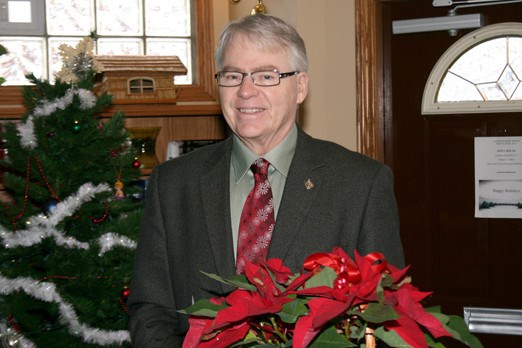Bruce Hyer dares anyone to follow him around for a week and then say he’s not working for the people of Thunder Bay-Superior North.
Hyer, who represents the riding for the NDP, on Saturday was reacting to recently published numbers that showed MPPs spent just 119 days in the House of Commons in 2010, far short of the 135 they’d been scheduled to sit, and 11 days shy of the 130 they sat for last year.
However, Hyer said while time spent in Ottawa is an important part of an MP’s job – for which they’re paid a hefty $157,731 minimum – it’s only a portion of the amount of work they put in during the course of a year.
“Being an MP is basically two full-time jobs,” Hyer said, attending the New Year’s Day levee at HMCS Griffon.
“There are another 20 days in Ottawa and another 120 days in the riding. My riding, Thunder Bay-Superior North, has 30 communities including 11 First Nations. I’m going on a tour all of January across the entire riding. We work hard. Some work harder than others, but we work very hard in the House of Commons.”
Hyer did admit that not all is rosy on Parliament Hill, thanks in part to what he called a dysfunctional situation in the House of Commons where minority governments have held the reins for more than five years.
“It has to do with the hyper-partisanship in the House,” he said.
Queen’s University political scientist last week told the Canadian Press that the current Parliament is doing less comparatively than others in the past four decades, making up for lost time by melding unrelated legislation into giant all-encompassing bills and more general enabling legislation that allows the government to revisit it outside the House of Commons.
"I think there’s a problem there,” Franks told CP. “I think in the long term government itself suffers because the bills that get through haven’t stood the test of parliamentary scrutiny … And so we’re governed in ignorance.”
According to Franks, between 1969 and 1974, MPs averaged 163 days in session, but it’s declined steadily ever since.
The good news is the 119 days is a marked improvement over the 105-day average that Ottawa saw between 2004 and 2008.
Hyer said there may be less legislation, but not because of a lack of trying on the part of his party.
“This has been a grinding mediocrity in this Parliament, there’s absolutely no doubt about it. But one thing I’m proud of is the NDP has only 11 per cent of the members in the House, but we introduced 62 per cent of the legislation into the House,” he said.
“I’ve introduced 12 bills of motion myself over the last two years. Apparently I’ve introduced more legislation into the House than all the previous members of Thunder Bay-Superior North combined … We do need to work harder in the House to make Parliament work better together.”
According to Franks, only 45 per cent of all bills introduced make it through to royal assent. Hyer’s controversial climate-change bill, for example, was quashed this fall by the unelected senate.
Interview requests filed with MP Greg Rickford (Con., Kenora) and John Rafferty (NDP, Thunder Bay-Rainy River) were not immediately returned because of holiday hours.
With files from The Canadian Press
